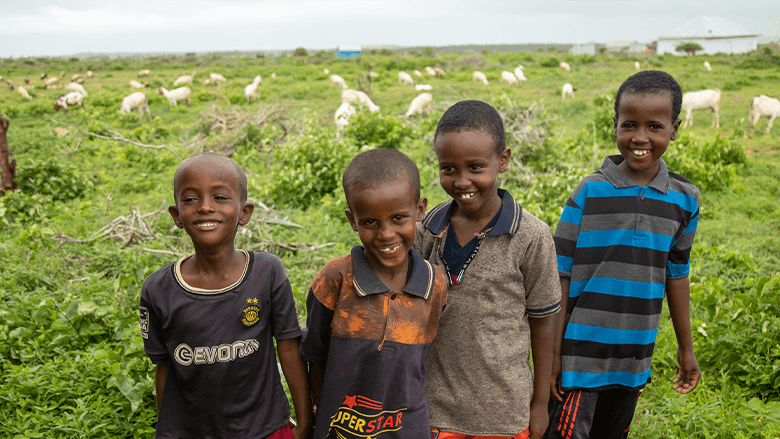
Reengaging with Somalia for Long-Lasting Development Outcomes
Somalia’s ambitious reforms laid the foundation for reengagement with the World Bank Group and other bilateral and multilateral partners. In 2013, the Multi-Partner Fund for Somalia was established with donor countries to facilitate coordinated financing for the country’s sustainable reconstruction and development. In 2018, the Bank Group’s Board of Executive Directors endorsed a four-year Country Partnership Framework for Somalia—the first development strategy for the country since the early 1990s. And in March 2020, Somalia cleared its arrears to the Bank Group, fully reestablishing its regular access to IDA resources for the first time in three decades and paving the way to receive debt relief under both the Heavily Indebted Poor Countries (HIPC) initiative and the Multilateral Debt Relief Initiative. Once Somalia reaches the HIPC Completion Point, its external debt is expected to be reduced from $5.2 billion (as of end 2018) to $557 million (in net present value terms).
“The biggest achievement of the Bank has been to walk slowly, side-by-side, shoulder to shoulder, with the government, through a process of reform,” notes Kristina Svensson, the Country Manager for Somalia. “This reform progress will need to be sustained towards the HIPC Completion Point, with increased focus on delivering tangible benefits to the people of Somalia, especially the most poor and vulnerable.”
Responding to Somalia’s development needs
Since March 2020, the World Bank has provided nearly $400 million in financing to help the government tackle the many urgent crises facing the country, while maintaining a line of sight toward long-term reforms and development goals.
Our response prioritizes service delivery through investments in education and health to ensure that Somalia’s people—including the most vulnerable—can benefit from the country’s transition and institutional reforms. During the conflict, both non-state and private actors played an important role in sustaining basic services, but limited government oversight allowed services to become fragmented, costly, and inconsistent in quality. Through financing, analytics, and policy research, we are helping Somalia improve health and education services and develop more sustainable models of financing for these essential services through the public sector.
Women and girls are at the center of our response in Somalia. We are supporting efforts to improve women’s access to basic health services through a larger cadre of trained and qualified female health workers. We have also reviewed our projects in Somalia to assess and identify risks of sexual exploitation and abuse, sexual harassment and other forms of gender-based violence. We identified key mitigation measures, potential partners and risk management actors operating in the country, and entry points for engagement. We are preparing operations to boost girls’ enrollment and retention in schools, recruit female teachers, provide safe and accessible learning facilities, and strengthen health systems for women and girls.
We seek to accelerate Somalia’s progress in building institutions and strengthening governance. Our support will help the government mitigate the immediate impacts of the ongoing crises while continuing to implement the reforms needed to improve government coordination, strengthen fiscal management, and promote inclusive private sector growth. One example is the innovative new financing facility Gargaara, which is expanding financial access for micro, small, and medium enterprises (MSMEs), with a special focus on women-owned businesses.
Mobile-based technology and platforms present an important opportunity to expand digital services in Somalia. An estimated 90 percent of adult Somalis own a mobile phone, while 73 percent use mobile money. In partnership with IFC, we have helped establish an independent telecoms regulator and boost competitive industry regulation, as well as a robust mobile money regulatory framework and digital payment systems. We are also helping the country develop a foundational, inclusive, and robust digital ID system to improve service delivery.

